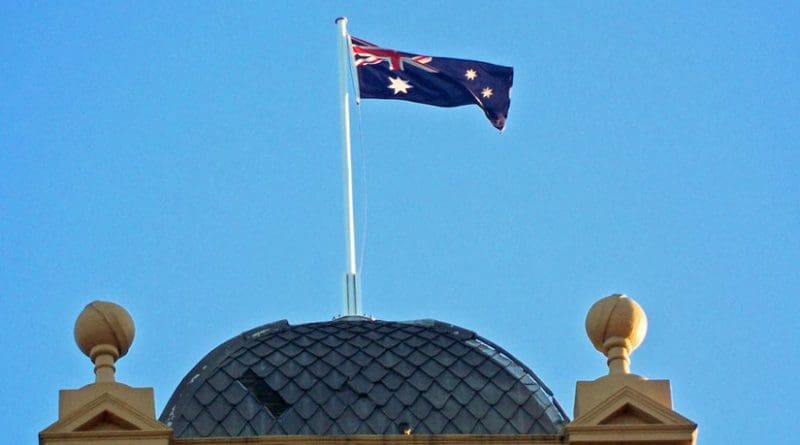Covering, And Exposing, Atrocity: Australian Commandos Come Forward – OpEd
Kevin Frost, a special forces sergeant in the Australian Army, has done something unusual. He wishes, even demands, to be tried for his role behind the summary execution of an Afghan prisoner in his captivity during a tour of the country.
From Frost came a statement to an inquiry digging through allegations of war crimes by Australian troops that took place after the invasion of Afghanistan in 2001. According to Frost, the incident took place on one of three tours of the beleaguered country with the ADF, though details were sketchy as to where, and when, it took place.
“The particular incident that I was involved in resulted in the POW that I captured actually being executed, murdered. Now, I can’t remember if he [the executioner] cut the cuffs off first or if he cut the cuffs off after he shot him. That’s one point I can’t remember there, because I wasn’t looking, I didn’t want to look. I turned around, and the guy was dead. He’d been shot through the forehead.”
For Frost, investigation and prosecution would be a form of deliverance, a necessary catharsis for his years of depression and onerous guilt. His statement almost assumed that of a desperate plea: “I believe I should be punished with the full weight of the law, and justly. I do not believe this should be brushed under the carpet.”
Frost’s case is not unusual. In May this year, a former lance corporal of the Army’s elite 1st Commando Regiment, given the name Dave, found keeping a lid on his role in a raid resulting in the deaths of Afghan children, impossible. He had been charged, along with his sergeant colleague, with manslaughter by former director of military prosecutions, Brigadier Lyn McDade. “From the moment I realised there were dead children, I was horrified, numb, just struggling to grasp.”
His missions were typical, operating in conditions of killing or capturing Taliban targets. In the blood lust and fury, there were bound to be casualties, notably against civilians. The fundamental problem in this approach remains its often unreliable foundation: that of suitable intelligence.
“The intelligence we received,” claimed Corporal Geoff Evans, “was of varying quality. Sometimes it was very, very good, and other times it felt like they were throwing a dart at a map.” All the travails, in fact, of guerrilla war and insurgency.
In this specific case, the prosecutor’s views, outlined in a memorandum from September 23, 2011, identified the sergeant as the individual giving the order to detonate grenades, “an indiscriminate weapons system, into a very confined space, when they ought to have known, and during the attack knew for certain, that women and children were present.”
According to Brigadier McDade, “the evidence discloses that Sergeant J and Lance Corporal D knew for certain there were women and children in the room. They both provided statements to the inquiry officer to this effect; specifically that they could hear the women and children screaming from inside the room.”
The lance corporal did have his case dismissed, but the ADF dug in its bureaucratic heels in not formally exonerating him and the sergeant. The lance corporal also took issue with the brigadier’s assessment of his state of awareness:
“We didn’t believe there would be any women and children in that room for two reasons, that being that we had earlier found who we believed to be the family living in that compound and removed them from an earlier room. And secondly, that we were now receiving gunfire from that room and we believed that we had found the insurgents that we had been told were staying there.”
Battle field conditions, and the search for the unruly and violent on the ground as convenient scapegoats of armchair ignorance, remain perennial themes. Controlling what happens in that field is, at best, an overly confident assertion in the face of adversity.
The point of such atrocities is that they are irreversible and immutable. As Lance Corporal “Dave” explained, despite disagreeing with the assessment of alleged criminality, “When you’ve realised you’ve killed children, devastating doesn’t even begin to describe it, and I feel like I can’t fix it and I can’t atone for it. I can’t do anything to undo the damage that was done.”
Atrocity is axiomatic to the waging of war. The righteous wars, pursued with misplaced moral outrage, tend to be the worst. The post-September 11, 2001 conflicts suffer from a brutalised mix of humanitarianism and vengeance, one that has been unsparing to Australia’s soldiers, and their victims.
Instead of putting a brake on enthusiastic deployments to distant, even irrelevant theatres of conflict, Australian governments continue to engage in blind, and damaging deployments. Where the Stars and Stripes go, the Southern Cross will follow. When that happens, there will be more Lance Corporal Daves and Sergeant Frosts.

